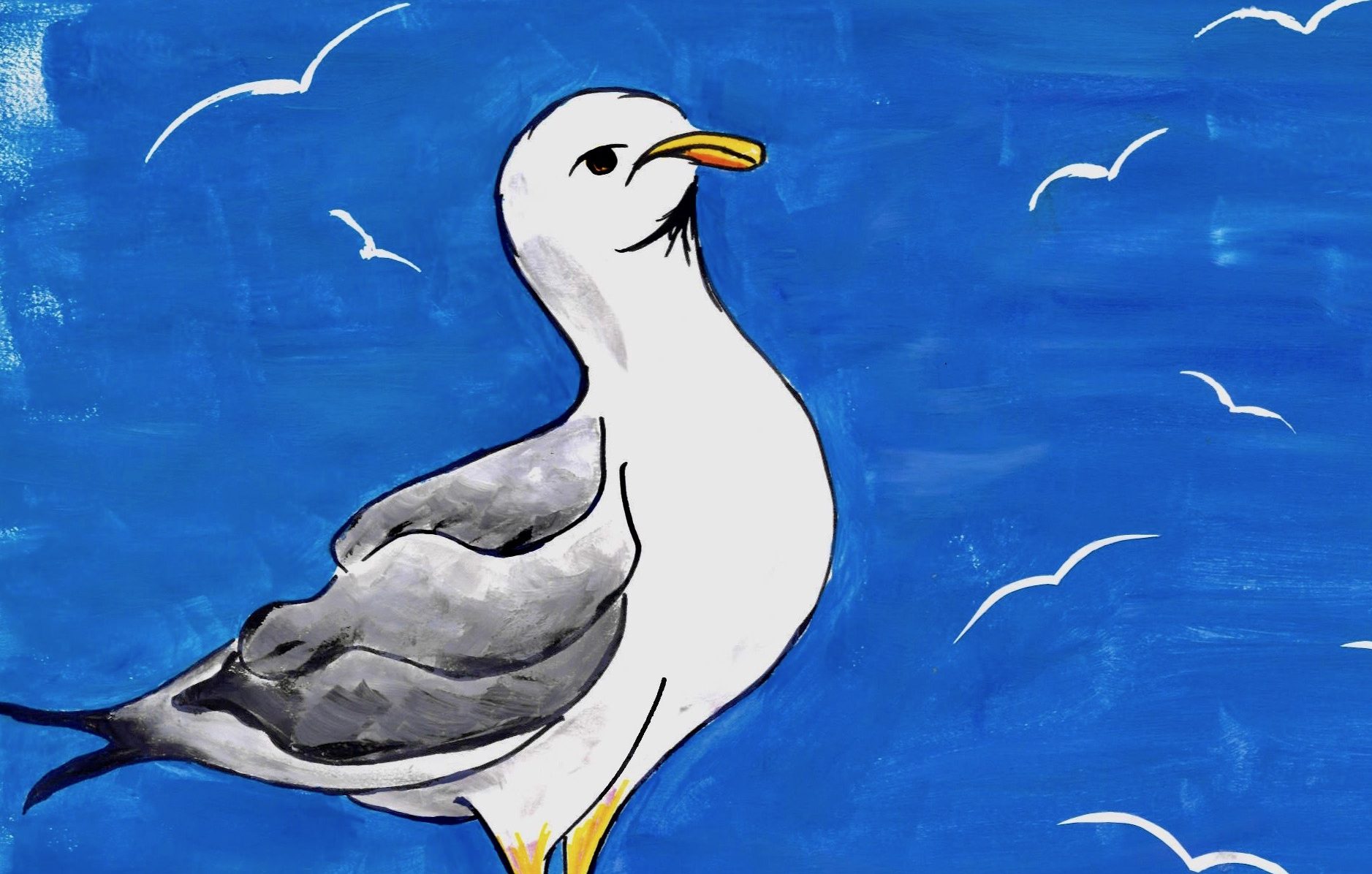“Outside the Book of Kells exhibit, unsuspecting tourists munch on snacks from Grafton street, and seagulls move in for the kill.” John Livingston, a prominent Trinity seagull, settles down for our interview: “This is how the world sees us.”
We take a seat outside the Arts Building at a picnic table, the site of numerous infamous seagull attacks; I ask John for his take on these incidents. “It’s a misunderstood seagull act of friendship,” he responds. “Unlike humans, seagulls share their food with each other. When we moved to College, we wrongly assumed that students would share their lunches, but they’re a cheap bunch of humans. They won’t pay more than a fiver for food, and then they don’t share it. If you want to take all of our fish from the ocean, then you can’t be upset when we develop a taste for chicken fillet rolls.” It is clear from John’s tone that the anti-seagull press has caused humans to fall out of favour with the seagull community.
“It is clear from John’s tone that the anti-seagull press has caused humans to fall out of favour with the seagull community.”
Towards the beginning of the interview, we discuss a light topic: the College community’s recent addition of the roomba to Fellow’s Square. “It’s quiet, keeps to itself,” John comments. “And the way it gets stuck in damp leaves and can’t move is sort of endearing. But when humans cut the grass, sometimes they accidentally drop food before or after their work, and that’s the dream. I guess most seagulls would be fully behind the new roomba.”
I broach the subject of the popular Arts Building pigeon who appears to have lost a leg during an encounter with local seagulls. “An unfortunate accident,” John squawks earnestly. “In friendly competitions for bread, occasionally birds get hurt. We love our pigeon buddies. We rarely try to eat other birds. Chicken fillets don’t count,” he adds hastily.
“We’re here to learn, just like everyone else,” Livingston insists. “While you hear meaningless screeches outside the libraries, we hear cries for help. We don’t have access to the same resources as human students. The best we can do is edge into the smoking areas of campus and hope to pick up some crumbs of knowledge, or dive near a reading student and try to see the open pages of their book. It’s a really difficult learning environment.”
“Let’s use memes to bond our species. It’s time for Trinity students and seagulls to live together in peace and work to make this earth better for future chicks.”
Finally, we reach the most tentative question. What does John Livingston think about the TCD Students Against Arts Block Seagulls page on Facebook? John ruffles his feathers: “I understand it’s coming from a place of fear,” he begins. “But that’s not a reason to start a movement against a whole group of birds. We’ve been called bullies, attackers, predators. And yet birds constantly fly into man-made glass windows, drown in human trash, or get mired in oil spills. We won’t even start on the great wildlife crisis in Australia right now. Sure, these seagull memes get a few laughs, and provide meager entertainment for the masses. But when will humans stop pointing the finger at us, and stop ruining our oceans?”
I thank John for his time. He’s off to visit his cousins in St Stephen’s Green: “We all share this planet, this campus. Let’s use memes to bond our species. It’s time for Trinity students and seagulls to live together in peace and work to make this earth better for future chicks.”






